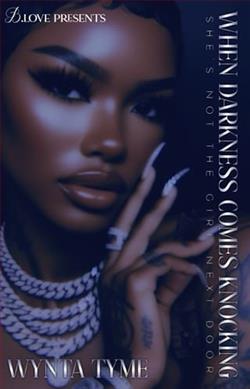Page 225 of Edge of Eternity (The Century 3)
Bobby took the phone from Ethel. "Hello?"
Across the grass, George noticed one of the house painters behaving oddly. He picked up his portable radio, spun around, and started running toward Bobby and the group on the patio.
George looked again at the attorney general. A look of horror came over Bobby's face, and suddenly George felt scared. Bobby turned away from the group and clasped his hand over his mouth. George thought, What is that bastard Hoover saying to him?
Then Bobby turned back to the group eating lunch and cried: "Jack's been shot! It might be fatal!"
George's thoughts moved with underwater slowness. Jack. That means the president. He's been shot. Shot in Dallas, it must be. It might be fatal. He might be dead.
The president might be dead.
Ethel ran to Bobby. All the men jumped to their feet. The painter arrived at the poolside, holding up his radio, unable to speak.
Then everyone began talking at the same time.
George still felt submerged. He thought of the important people in his life. Verena was in Atlanta, and she would hear the news on the radio. His mother was at work, in the University Women's Club; she would hear in minutes. Congress was in session, and Greg would be there. Maria--
Maria Summers. Her secret lover had been shot. She would be grief-stricken--and she would have no one to comfort her.
George had to go to her.
He ran across the lawn and through the house to the parking lot in front, jumped into his open Mercedes, and drove off at top speed.
*
It was just before two in the afternoon in Washington, one in Dallas, and eleven in the morning in San Francisco, where Cam Dewar was in a math class, studying differential equations and finding them hard to understand--a new experience for him, for until now all schoolwork had been easy.
His year in a London school had done him no harm. In fact the English kids were a little ahead, because they started school younger. Only his ego had been damaged, by Evie Williams's scornful rejection.
Cameron had little respect for the hip young math teacher, Mark "Fabian" Fanshore, with his crew cut and his knitted ties. He wanted to be the pupils' friend. Cameron thought a teacher should be authoritative.
The principal, Dr. Douglas, stepped into the room. Cameron liked him better. The school's leader was a dry, aloof academic, who did not care whether people liked him or not as long as they did what he told them.
"Fabian" looked up in surprise: Dr. Douglas was not often seen in classrooms. Douglas said something to him in a low voice. It must have been shocking, for Fabian's handsome face paled beneath his tan. They talked for a minute, then Fabian nodded and Douglas walked out.
The bell rang for the midmorning break, but Fabian said firmly: "Stay in your seats, please, and listen to me in silence, all right?" He had the odd speech habit of muttering "All right?" and "Okay?" with unnecessary frequency. "I've got some bad news for you," he went on. "Terribly bad news, in fact, okay? There has been a dreadful event in Dallas, Texas."
Cameron said: "The president is in Dallas today."
"Correct, but don't interrupt me, okay? The very shocking news is that our president has been shot. We don't yet know if he's dead, all right?"
Someone said: "Fuck!" out loud but, astonishingly, Fabian ignored it.
"Now I want you to keep calm. Some of the girls in the school may be very upset." There were no girls in the math class. "The younger children will need reassurance. I expect you to behave like the young men you are and help others who may be more vulnerable, okay? Take your break now as usual, and look out for alterations in the school timetable later. Off you go."
Cameron picked up his books and walked out into the corridor, where all hope of quiet and order evaporated in seconds. The voices of children and adolescents pouring out of classrooms rose to a roar. Some kids were running, some standing dumbstruck, some crying, most shouting.
Everyone was asking whether the president was dead.
Cam did not like Jack Kennedy's liberal politics, but suddenly that did not matter. If Cam had been old enough, he would have voted for Nixon, but all the same he felt personally outraged. Kennedy was the American president, elected by the American people, and an attack on him was an attack on them.
Who shot my president? he thought. Was it the Russians? Fidel Castro? The Mafia? The Ku Klux Klan?
He spotted his younger sister, Beep. She yelled: "Is the president dead?"
"Nobody knows," Cam said. "Who's got a radio?"
She thought for a moment. "Dr. Duggie has one."















